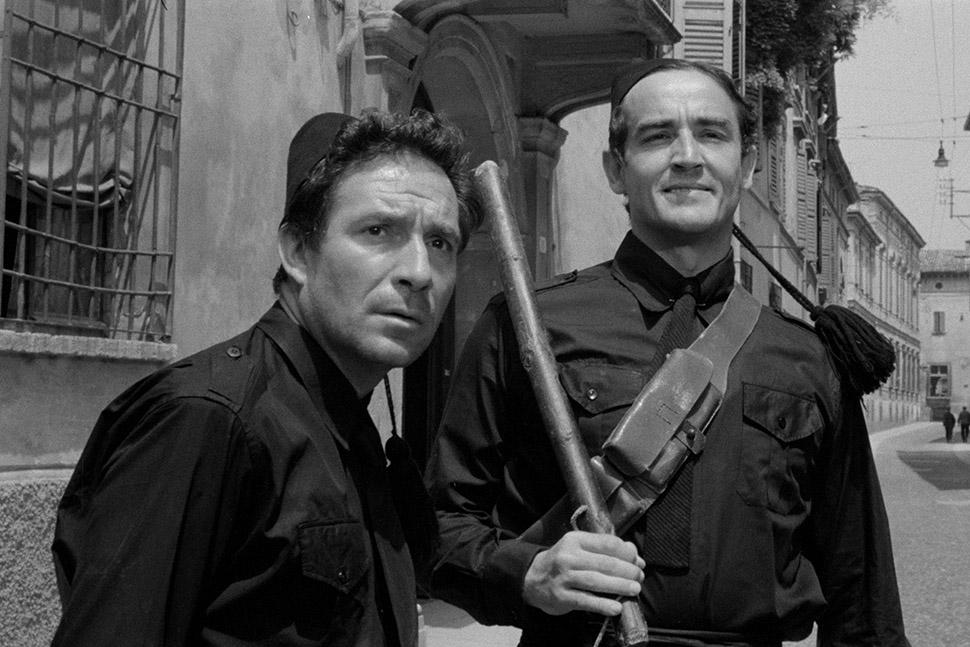| Director: | Dino Risi |
|---|---|
| Production: | Fair Film, Orsay Films |
| Running Time: | 95’ |
| Language: | Italian |
| Country: | Italy, France |
| Year: | 1962 |
| Main Cast: | Vittorio Gassman, Ugo Tognazzi, Roger Hanin,
Mario Brega, Giampiero Albertini
|
| Screenplay: | Agenore Incrocci, Furio Scarpelli, Ruggero Maccari, Ettore Scola, Sandro Continenza, Ghigo De Chiara |
| Cinematographer: | Alfio Contini |
| Editor: | Alberto Gallitti,
Ugo Pericoli
|
| Production Designer: | Alberto Gallitti,
Ugo Pericoli
|
| Costume Designer: | Ugo Pericoli |
| Music: | Marcello Giombini |
| Restoration: | CSC - Cineteca Nazionale |
| Laboratories: | Augustus Color |
|---|




